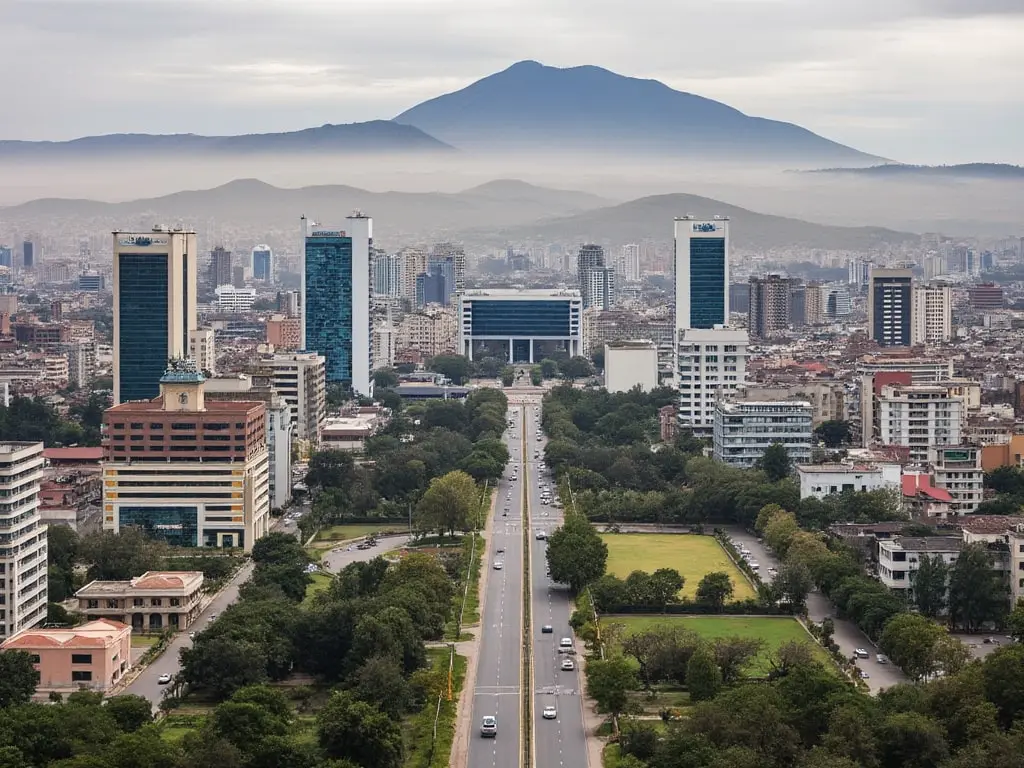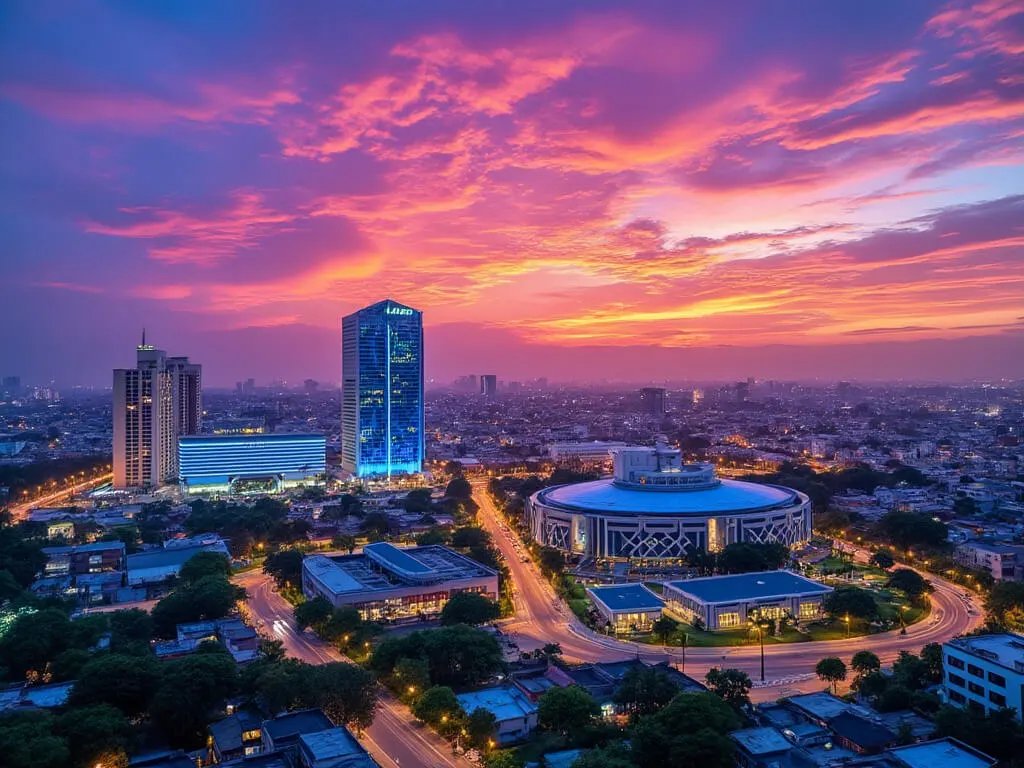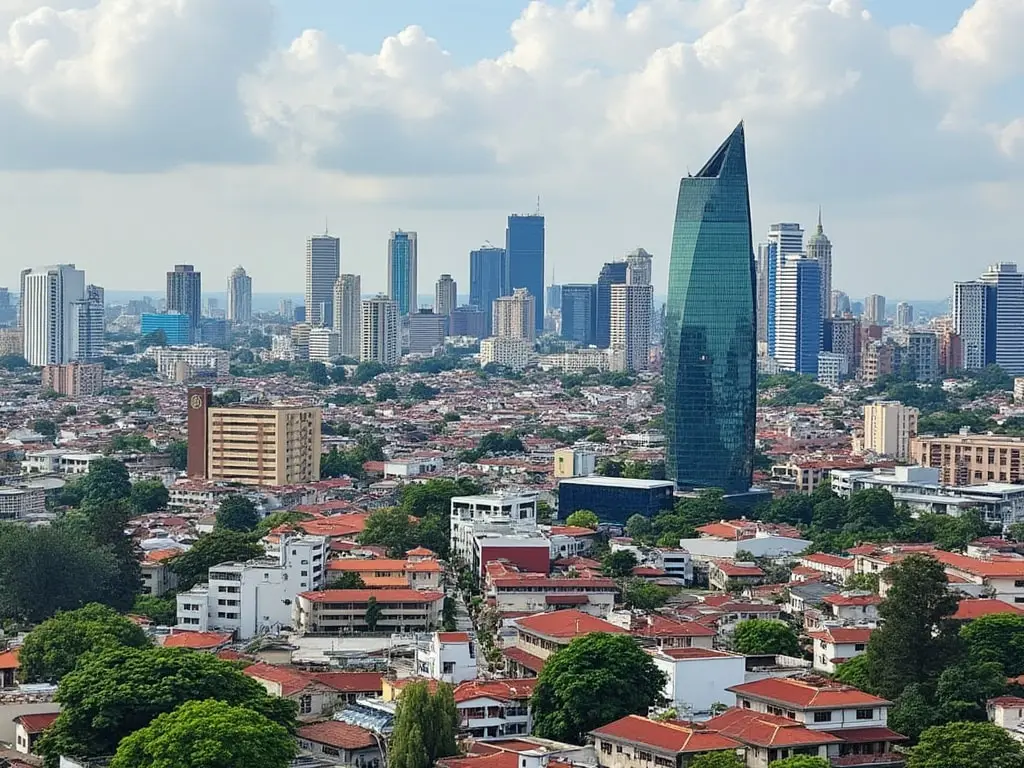
Addis Ababa, the capital city of Ethiopia, is a vibrant and bustling metropolis that embodies the country's rich history, culture, and natural beauty. Located in the central highlands of Ethiopia, Addis Ababa is a city of contrasts, where traditional and modern architecture blend seamlessly together.
Addis Ababa information
| Country | 🇪🇹 Ethiopia |
| City Population | 3,433,999 (2020 estimate) |
| City Coordinates | 9.0247° N, 38.7469° E |
| City Area | 527 km² (203.5 sq mi) |
| Climate | Subtropical highland climate (Cfb) |
| Language | Amharic (official), Oromo, Tigrinya, Somali |
| Currency | Ethiopian birr (ETB) |
| Time zone | EAT (UTC+3) |
| Proximity to other major cities | Nairobi, Kenya (850 km/528 mi), Khartoum, Sudan (1,100 km/683 mi) |
Interesting facts about Addis Ababa
- Addis Ababa is home to the largest market in Africa, the Merkato, which covers an area of over 30 hectares.
- The city is home to several universities and research institutions, including Addis Ababa University, which is one of the largest universities in Africa.
- Addis Ababa is known for its vibrant nightlife, with several bars, clubs, and restaurants that offer a range of traditional and modern entertainment.
Tourist attractions in Addis Ababa
- National Museum of Ethiopia
- Holy Trinity Cathedral
- Menelik II Palace
- Merkato Market
- Entoto Hills
Historical background of Addis Ababa
Addis Ababa was founded in 1886 by Emperor Menelik II, who established the city as the capital of Ethiopia. The city's name, which translates to "new flower" in Amharic, reflects its status as a symbol of the country's rebirth and modernization. Throughout its history, Addis Ababa has played a significant role in Ethiopian politics, culture, and economy.
Geographical location of Addis Ababa
Addis Ababa is situated in the central highlands of Ethiopia, at an altitude of 2,350 meters (7,700 ft) above sea level. The city is nestled in a valley surrounded by mountains, which provides a mild climate and breathtaking scenery. The city's geography has made it an attractive location for trade and commerce, with several major roads and railways connecting it to other parts of the country.
Cultural significance of Addis Ababa
Addis Ababa is a city that proudly showcases Ethiopian culture and heritage. The city is home to numerous museums, galleries, and cultural institutions, including the National Museum of Ethiopia, which houses a vast collection of artifacts and exhibits that tell the story of Ethiopia's rich history and culture. The city is also known for its vibrant music and dance scene, with traditional Ethiopian music and dance performances taking place throughout the city.
Economic importance of Addis Ababa
Addis Ababa is the economic hub of Ethiopia, with a diverse range of industries, including manufacturing, construction, and services. The city is home to several major companies and organizations, including the African Union and the United Nations Economic Commission for Africa. The city's economy is also driven by its strategic location, with several major roads and railways connecting it to other parts of the country and the region.
Conclusion on Addis Ababa
Addis Ababa is a city that offers something for everyone, from its rich history and culture to its vibrant music and dance scene, and from its stunning natural beauty to its modern architecture and amenities. Whether you're a history buff, a culture vulture, or simply looking for a unique and exciting travel experience, Addis Ababa is a city that is sure to leave you with lasting memories.
 Algiers
Algiers
 Alofi
Alofi
 Abuja
Abuja
 Accra
Accra